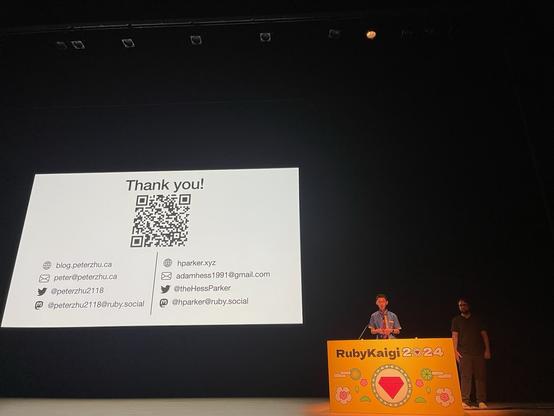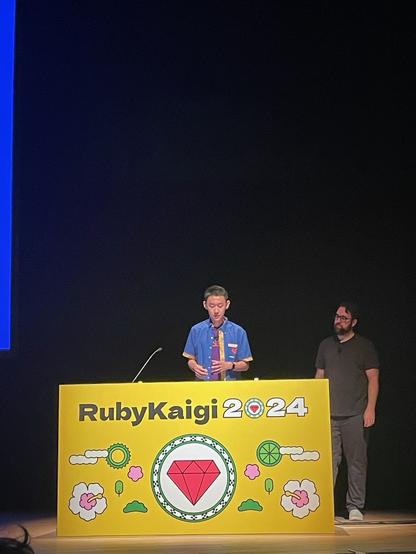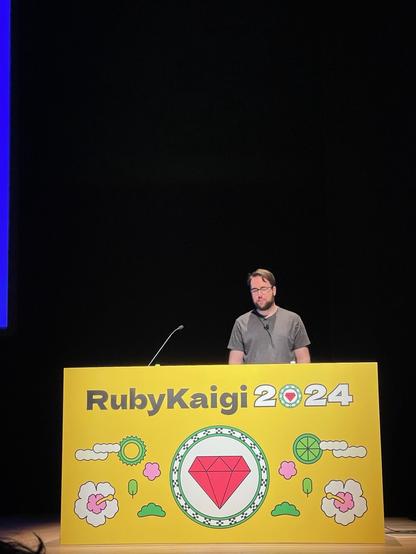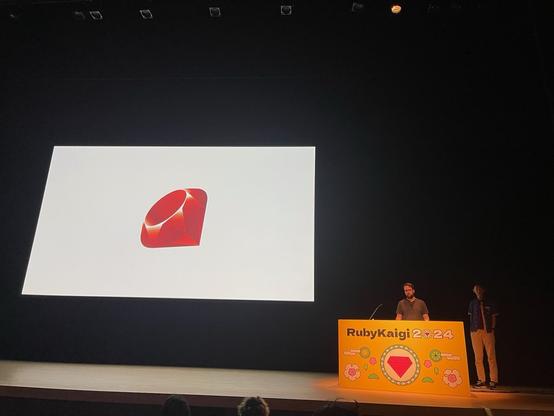HParker
- 77 Followers
- 93 Following
- 66 Posts
prototype of some driving & level editing mechanics, don't know how much I'll work on it but getting driving going was surprisingly fun :)
https://tbillington.itch.io/driving #BevyEngine #rustlang #gamedev
My @rubykaigi 2024 talk with @HParker is now on YouTube!
[EN] Finding Memory Leaks in the Ruby Ecosystem / Peter Zhu Adam Hess @peterzhu2118 @HParker
I converted my RubyKaigi 2024 talk "Finding Memory Leaks in the Ruby Ecosystem" into a blog post.
In this blog post, I introduce RUBY_FREE_AT_EXIT, a new feature in Ruby 3.3 that @HParker and I worked on.
https://railsatscale.com/2024-07-09-finding-memory-leaks-in-the-ruby-ecosystem/
Finding Memory Leaks in the Ruby Ecosystem
Until recently, Ruby lacked a mechanism for detecting native-level memory leaks from within Ruby and native gems. This meant that it was hard to analyze Ruby applications that suffered from memory leaks, causing them to consume increasing amounts of memory until the system runs out and terminates the application. In this blog post, we’ll be looking at the RUBY_FREE_AT_EXIT feature, which allows memory leak checkers to find memory leaks in Ruby and in native gems.
RubyKaigi 2024 でLTしたスライドです!
Contributing to the Ruby Parser https://speakerdeck.com/gamelinks007/contributing-to-the-ruby-parser
Autotuner: How to Speed Up Your Rails App
Ruby’s garbage collector is designed to be adaptable, scaling from short Ruby scripts to running apps that serve millions of requests per second. While it’s designed to be adaptable, it may not work optimally for every use case. For this reason, Ruby’s garbage collector supports many parameters that can be used to tune it. However, the use of these parameters requires knowledge into how the garbage collector works on the inside. Learn how the Autotuner gem can analyze your app’s traffic and provide suggestions for tuning the garbage collector.
Ruby might be faster than you think - John Hawthorn
I saw a project a couple weeks back which allows writing and running Crystal methods inline inside a Ruby file. It’s a neat project, and I don’t want to take away from it but something in the README example looked off to me. require 'crystalruby' require 'benchmark' module Fibonnaci crystalize [n:






